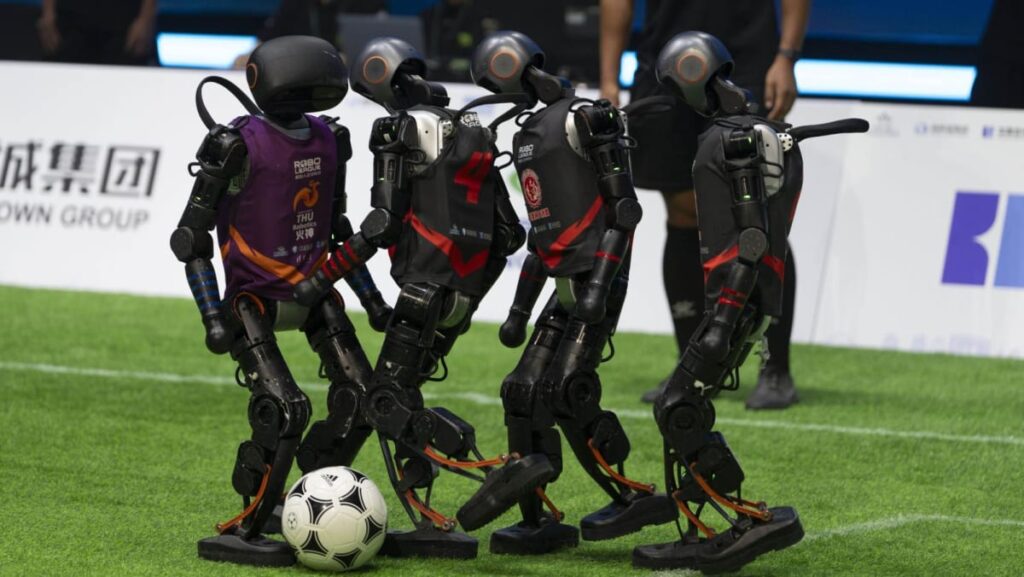Cheng Hao, founder and CEO of Booster Robotics, the company that supplied the robot players, said sports competitions offer the ideal testing ground for humanoid robots, helping to accelerate the development of both algorithms and integrated hardware-software systems.
He also emphasised safety as a core concern in the application of humanoid robots.
“In the future, we may arrange for robots to play football with humans. That means we must ensure the robots are completely safe,” Cheng said. “For example, a robot and a human could play a match where winning doesn’t matter, but real offensive and defensive interactions take place. That would help audiences build trust and understand that robots are safe.”
Booster Robotics provided the hardware for all four university teams, while each school’s research team developed and embedded their own algorithms for perception, decision-making, player formations, and passing strategies—including variables such as speed, force, and direction, according to Cheng.
https://www.channelnewsasia.com/east-asia/china-humanoid-robots-football-matches-beijing-fully-autonomous-ai-driven-5209806


